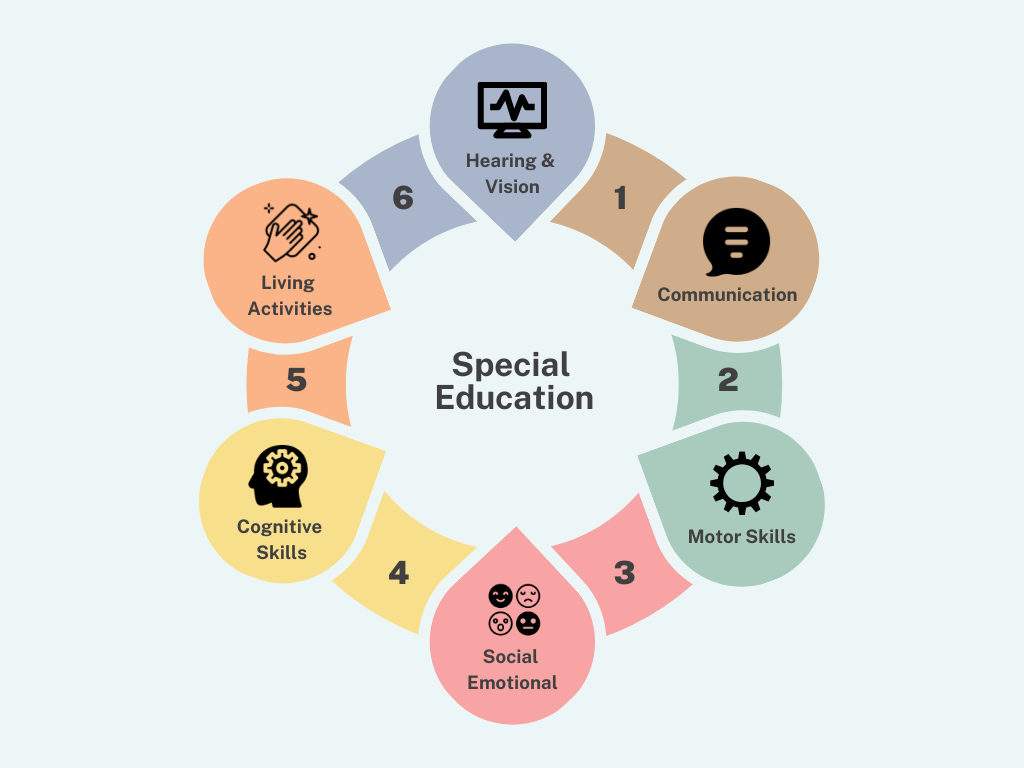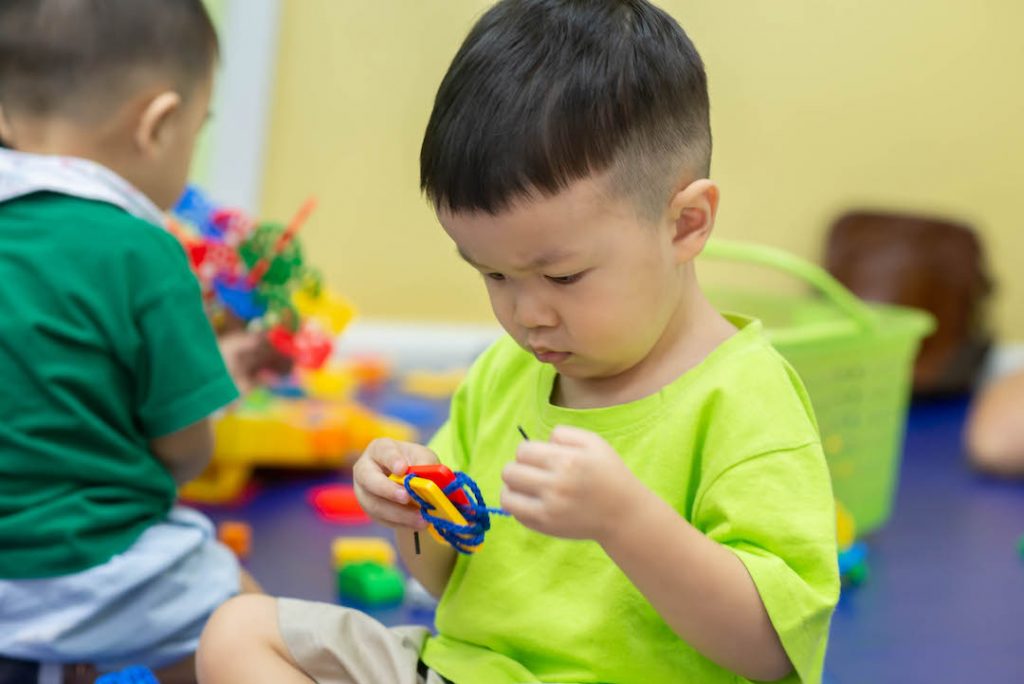What is Special Education?

Special Needs Preschool is an early childhood education program designed for children ages 3 to 5 who have developmental delays or disabilities.
Special Needs Preschools

Special needs preschools, a type of special education school, are early childhood education programs designed specifically for children aged 3 to 5 experiencing developmental delays.
These delays can affect the following areas:
- Communication (speaking and understanding language)
- Motor skills (movement and coordination)
- Social-emotional skills (managing emotions and interacting with others)
- Cognitive skills (thinking and learning)
- Daily living activities
- Hearing and vision
Early Intervention

Early intervention, offered through special needs education, is a helping hand for young children who need a little extra support to learn and grow. It’s like having a personal coach for young children who might have delays in learning or talking. Through therapies like moving around (physical therapy), using toys and getting dressed (occupational therapy), and talking (speech therapy), early intervention helps them catch up and get ready for school.
A Day in a Special Needs Preschool
For many kids, preschool serves as their initial exposure to an educational environment with teachers and friends. It’s a nurturing space where they learn and develop crucial social skills like sharing, following instructions, and interacting with other children. Preschoolers enjoy ample opportunities for learning through play and overall growth.
While regular preschools provide a foundation, special needs preschools go the extra mile by offering individualised support. On top of the standard curriculum, they provide customised therapies, behavioural assistance, and any other specialised services that may be needed. These can include speech therapy to improve communication, occupational therapy for enhancing daily life skills, or physical therapy to aid with movement and coordination – all led by qualified special education teachers and trained assistants.
How to Find Out if Your Child Needs Special Education
Are you noticing delays or difficulties in your child’s development? Take these steps to find out if they need special education services or should attend a special education preschool.
Step 1: Early Intervention Services (Under 4 Years Old)
At first, if your child is under 4 years old and you worry about their development, register with the Community-Based Rehabilitation Centre (PDK) under the Social Welfare Department. They will assess your child to see if your child need any early intervention services.
Step 2: Multidisciplinary Evaluation (4-6 Years Old)
At this time, if your child is between 4 to 6 years old, you’ll need to request a Multidisciplinary Evaluation from the Special Education Division at the Ministry of Education. Don’t worry, you don’t need any official medical diagnosis for this evaluation.
Step 3: Evaluation Process
Once you make that request, the Special Education Division has 60 days to complete their assessment. During this time, a qualified team will thoroughly evaluate your child’s needs. They are professionals like psychologists, special education teachers, therapists, and medical officers.
Step 4: Receiving Results and Recommendations
After the assessment, you’ll receive the results and recommendations. In addition, if the team finds that your child requires special education services, they may recommend special needs preschool programs. The special education preschools like PPKI or PPKHAS.
Are you worry about your child’s development? Take action now. Reach out to the Ministry of Education or look up centres in our directory. They have proper processes in place to identify special needs and provide the right support programs through special education or special needs preschool options.

The Ultimate Guide to Taekwondo Belts: Unlocking Levels and Secrets

8 Must-Join Enrichment Classes to Skyrocket Your Child’s Skills

In Malaysia’s diverse educational landscape, an increasing number of non-Chinese parents are choosing Chinese primary schools for their children. This trend reflects changing perceptions about education and future opportunities. Let’s explore five key reasons behind this growing preference: 1. Strong Foundation in Mathematics and Science Malaysian Chinese primary schools are known for their strong emphasis […]




